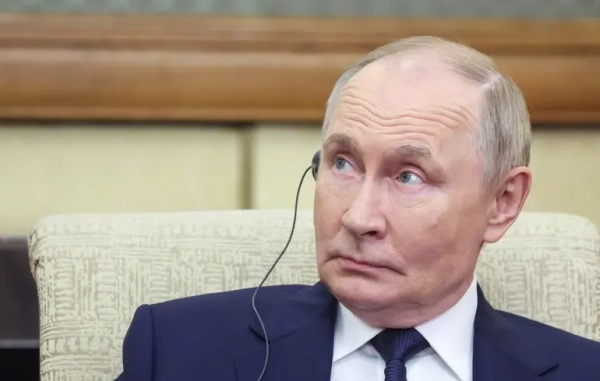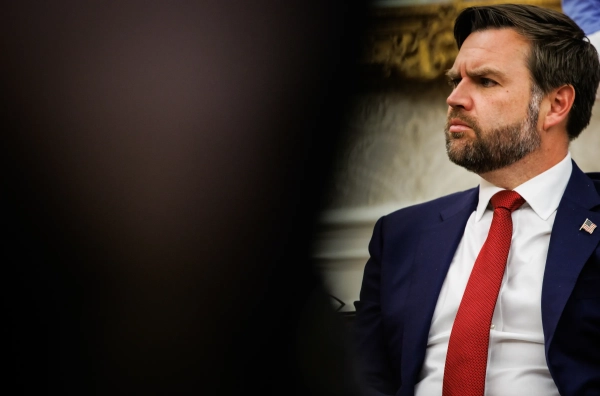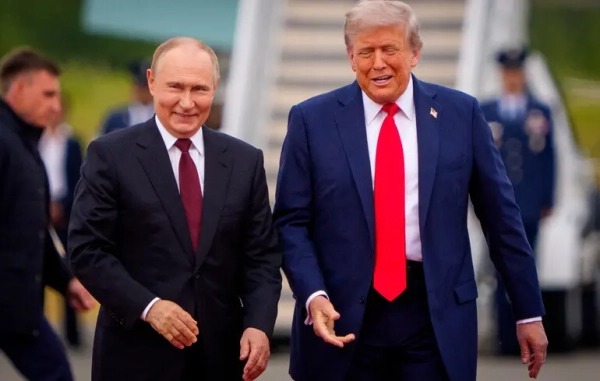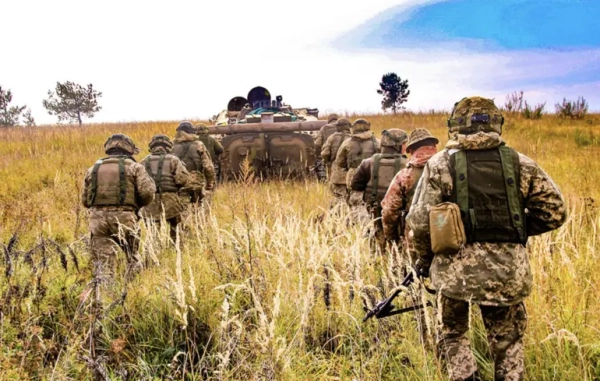
© EPA/ MAXIM SHEMETOV / POOL The capacity for confidential dialogue with an opponent is now more crucial than ever.
The conflict in Ukraine is arriving at a crucial juncture, with the potential meeting between Donald Trump and Vladimir Putin, and the Kremlin indicating its willingness to generate increased hazards and difficulties for Europe, the principal supporter of Kyiv's defense.
As Europe endeavors to restrain Russian hostility, a significant instrument is notably absent from its resources — private avenues for dialogue with the opposing side, according to Alexander Gabuyev, the head of the Carnegie Russia-Eurasia Center situated in Berlin.
Since February of 2022, the West has faced several essential periods that could have escalated into a direct clash between Russia and NATO. During each event, the alliance utilized lines of communication with the Kremlin to handle potential dangers.
Consistent and discreet interactions involving skilled members of the American national security apparatus and their Russian counterparts have consistently been in place to provide diplomatic reinforcement for any NATO initiatives intended to bolster support for Ukraine.
If incidents mirroring the recent Russian drone strikes in Europe had transpired a year prior, European authorities would have been aware that an expert from across the Atlantic was already engaging in discussions with the Russians. Such engagements would have conveyed to Moscow that a premeditated attack causing significant casualties in Europe would result in grave repercussions—and would have assisted in establishing particular guidelines.
Gabuyev mentions that NATO currently lacks comparable high-ranking channels of communication — except, naturally, for Donald Trump and his team. It is paradoxical that while Europe legitimately insists on involvement in deliberations concerning key elements of the continent's security, it is the sole stakeholder without established operational lines of contact with Russian security agencies and the Kremlin.
Even Kyiv maintains such avenues — via intermediaries situated in the Middle East and directly during dialogues with the Russians in Istanbul: despite the present suspension of these dialogues, the teams continue to sustain communication.
“Establishing a framework for crisis communication channels should represent a self-evident measure for Europe as the probability of a direct confrontation with Russia – potentially stemming from misjudgment or happenstance – intensifies, and the Trump administration frequently keeps Europeans uninformed regarding its engagements with the Kremlin. The current leadership is also swiftly abandoning the customary role of the US as the “responsible party” concerning matters pertaining to the Russian threat,” asserts the director.
Alongside the horrors of the war in Ukraine, this peril is progressively intensifying for Europe. The recent drone attacks serve as an illustration. According to the Kremlin, Kyiv’s defense capabilities are largely contingent upon Ukrainian production facilities based in the European hinterland — and now appears to be an opportune moment to highlight their susceptibility.
Drone incursions into NATO territories are intended to make Europeans “experience the ramifications” of their backing for Ukraine and incite dissatisfaction with Kiev. To date, however, this has generated the reverse outcome: European nations have begun to address the counter-drone struggle with increased gravity, and several have even augmented cooperation with Ukraine. Nevertheless, should Putin perceive that his tactic is proving ineffective, he might escalate the stakes employing even more perilous approaches.
“Furthermore, even after the cessation of hostilities, adverse relations with Europe are prone to persist as a central component of Russian security strategy, at least for the duration of Putin’s tenure. Consequently, the Kremlin's endeavors to undermine the continent via hybrid tactics may persist beyond the war in Ukraine,” Gabuyev contends.
Predictably, the concept of initiating a discourse with Russian security entities is divisive among Europeans. Since 2022, infrequent attempts at such interaction have solely resulted in disappointment. An additional concern revolves around the unfavorable heritage of the pre-war era, when Berlin and Paris assumed a leading role in engagement with Moscow, thereby fostering mistrust and discontent among NATO's Eastern European members.
At present, only a select few European leaders, notably within the defense and security sectors, possess familiarity with or are considered credible counterparts by the Russians. Moreover, prior to formulating such avenues, Europe necessitates consensus on a definite agenda encompassing risk mitigation in interactions with Moscow, as well as the establishment of a collection of guiding tenets—while averting the generation of surprises for the United States.
“However, fundamental shifts in the milieu render these actions pressing. It is exceedingly opportune for Europe to relearn the art of interacting with its adversaries,” the director concluded.
It’s worth reminding that Ukraine's allies are urgently reinforcing Kyiv's standing preceding discussions between US President Donald Trump and Russian President Vladimir Putin, apprehensive that they might broker an undesirable agreement that will enfeeble the entirety of Europe. A three-faceted support package is under deliberation.






